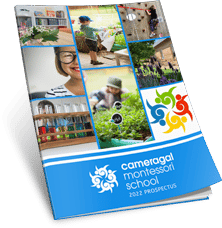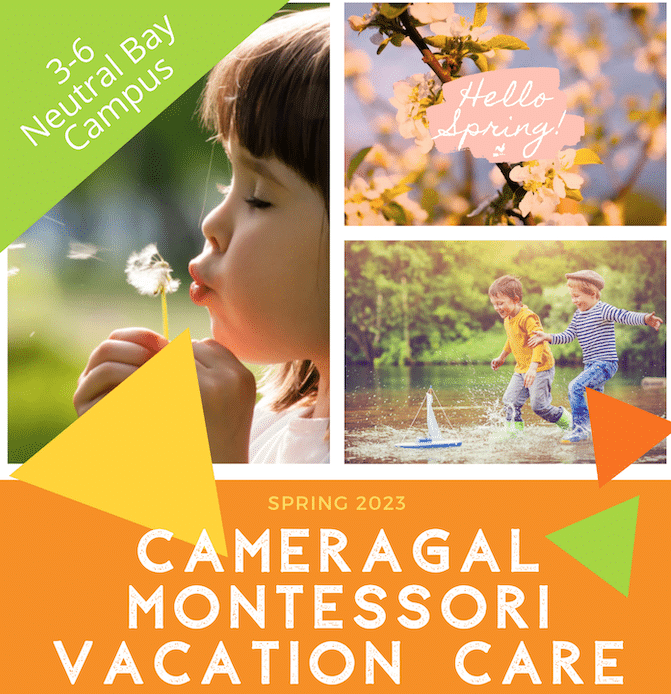I can Do It By Myself
An education that supports your child in reaching their full potential.

Our Primary Montessori program supports your child in becoming more aware of the world around them, while developing the skills, beliefs and personality traits that will define the adult they become.
Our Primary Education program is also registered by the New South Wales Educational Standards Authority (NESA) as offering an education equivalent to that of any other NESA registered school.
Helping your child grow into a confident, independent teen.
By this age you will be enjoying watching your child’s unique personality grow and see them express themselves and explore their potential. Their broadening knowledge is developing into preferences, opinions, and beliefs that lay the foundation for the values they carry into adulthood.
While you’re still the hero in their life, you’re realising that your child is noticing other influences, and now is the time to invest in their education to direct them in the most positive direction.
How we shape your child’s approach to learning…
Supporting your child as they develop their personality is key to helping them grow into a well-rounded person. As a parent, there are many options available to you – but not all deliver the same results. Our accredited Montessori program differs from traditional primary school in three key ways:
- Active learning. Rather than passively watching their teacher, our children take active ownership in their education by setting learning goals and managing their time and progress through a diary – much like successful adults do.
- Tailored learning. Each child engages in a practical program of fun, hands-on activities, fully tailored to meet their individual development levels and needs, which are monitored and regularly optimised by their teachers
- Teacher/student conferences. These are held regularly to review completed work, discuss goals, and decide on areas of focus.
Learn more about Montessori philosophy here.
…and future character.
Our Primary program prepares your child for optimum learning throughout life. Not only will they feel at home with us, but they will also become familiar with Montessori principles and accelerate their development in a number of key areas:
- Independence to play and learn autonomously
- Emotional intelligence to analyse and adjust to their environment
- Resilience to persist, even with new or challenging activities
- Social skills to confidently connect with others
- Character to meet and tackle new challenges
- Sense of self to grow to love themselves

NSW Education Standards (NESA) – Delivered More Effectively
Our primary program and outcomes meet all curriculum milestones as defined by NESA, including:
- English
- Mathematics
- Science
- History
- Geography
- Technologies
- Creative Arts
- Personal Development
- Health and Physical Education
Where we differ from traditional methods is the ways in which we reach these outcomes. While traditional classrooms focus on silo teaching methods – where Maths is taught during Maths class, English during English class – our active approach uses hands-on activity-based learning to teach all subjects. This unique approach means many children achieve higher standards than traditional schools.
Here’s an example of how we can turn the task of working in our garden into a broad learning experience:
- Measuring and documenting soil weight, water quantity, and growth of plants naturally incorporates maths.
- Understanding how and why a plant grows, and investigating the effects on growth of soil, sun, water, and other elements incorporates science.
- Working with others – documenting procedural steps, identifying potential challenges, brainstorming solutions, negotiating decisions – all work to build critical skills in leadership and teamwork.

Our education in action.
Every day at our Primary school is different because every child is different and has individual needs. A visit to our school would show children engaging in a number of opportunities for learning both in and beyond the classroom.
A typical day may include:
- 8:30-9:00am: Chores are completed, which may include activities like gardening, composting and getting prepared for the first lesson of the day.
- 9:00-12:30pm: Learning begins – some children may learn about nouns in a group, by writing lists of objects they can see. Others may learn individually using the large bead frame to understand long division.
- 12:45-1:45pm: It’s lunch time! The children enjoy fresh beans and salad harvested from the garden that morning, before packing up and playing.
- 1:45-3:00pm: Afternoon activities might include reading, music and language lessons, a library visit, sports or an Art activity. Once a week, the class holds a community meeting – run by one of the children using an agenda the children have contributed to throughout the week – to discuss and resolve problems which have arisen in class, and plan activities.
- 3:00-3:15pm: Children take turns to ring the classroom bell, signalling pack up time. Tables are wiped, materials are put back on shelves, and bins and recycling are emptied to prepare the classroom for tomorrow.

Important information for parents.
Primary school times : Monday to Friday from 8.30am to 3.15pm
Location: 10 to 12 Miller Street, North Sydney. Ph: (02) 9954 0344
Our school is welcoming of all backgrounds.
Parents of our school community come from a diverse range of cultural, social and religious (or non-religious) backgrounds. But they all share a belief in the importance of the Montessori approach, and a desire to give their children the best possible start in life.
Frequently Asked Questions
Who will be teaching my child?
Each class has a qualified Montessori lead teacher with recognised NESA teaching qualifications and experienced assistants depending on the number of students and type of activity.
Why is there multi-year age range in each classroom?
Traditional schools generalise development by grouping children of the same age together, whether they are at the same level or not. We optimise development by tailoring guidance to each child based on their individual needs, no matter their age. Then, as each child masters activities and skills, we encourage them to teach others, further developing and expanding their skills in areas of patience, empathy, instruction and leadership. This process optimises each child’s learning experience without leaving anyone behind.
Furthermore, encouraging collaboration between Year 1 to 3 and Year 4 to 6 children helps older children learn empathy, patience, and leadership as they guide younger children. Younger children learn critical social skills as they look up to their older role models.
What sporting opportunities are available?
Children participate in a wide range of sports such as swimming, bushwalking, surfing, dance, gymnastics and tennis.
How do I transition my child to another school to complete their secondary school education?
The skills that Montessori children learn – including achievements in NESA curriculum as well as time management, self-direction, resilience, conflict resolution, leadership, socialising and more – make transitioning to all forms of Secondary Schools natural and easy. Although our teaching approach is unique, children learn the same curriculum, complete NAPLAN in Year 3 and 5, and are offered the selective school examination. Once they have completed our 9-12 Primary Program, they are equipped and prepared to transition to any secondary school.
Is there After School Care?
Yes there is. The school partners with and offers a free bus service to three after school care providers – North Sydney Community Centre, BrightSparks Performing Arts School and TinkerTank (STEAM education).
We would love to show you around.
You are invited to view our teaching methods in action and get a feel for our teachers’ passion and impact at a campus tour.





